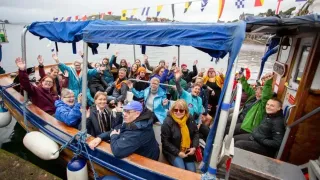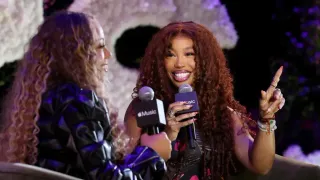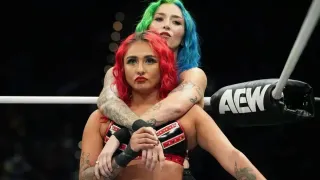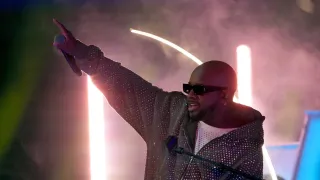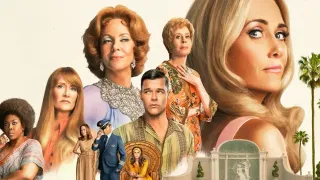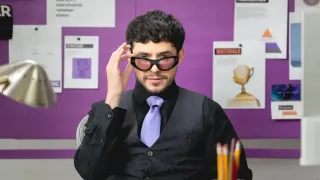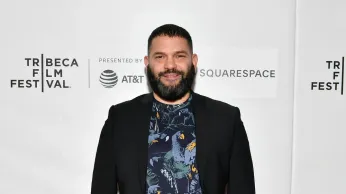
5 hours ago
Guillermo Díaz: Queer Latino Trailblazer Steps Behind the Camera
READ TIME: 3 MIN.
Guillermo Díaz, whose career spans more than 30 years, has become a prominent figure in the entertainment industry for his unapologetic embrace of his queer and Latino identities. Known for standout roles in "Party Girl", "Half Baked", "Bros", and the hit TV series "Scandal", Díaz has consistently defied Hollywood norms and typecasting. This season, he stepped into a new role as director, making his feature-length debut with "Dear Luke, Love Me" .
Díaz’s journey has been marked by resilience and a commitment to authenticity. Born in New Jersey to Cuban immigrant parents, he grew up in Washington Heights, Manhattan, surrounded by the vibrancy of Latino culture and the challenges of immigrant life . He credits his parents’ work ethic and perseverance for shaping his own drive. “They both had two jobs; we were latchkey kids, and I just saw them constantly working and wanting to provide for us by any means. So that was super instilled in me,” Díaz shared, reflecting on how his upbringing informed his approach to acting and life .
When Díaz entered the industry in the early 1990s, diversity and positive representation were scarce. He recalls that most roles available to him were negative stereotypes—thugs, dealers, or marginalized characters. Instead of hiding his identity, Díaz chose honesty. He played several gay roles despite warnings from his management about potential typecasting, and he made a pivotal decision to be open about his sexuality. “I’m not going to freaking lie. When they’d asked me, I would say I was gay. I think because I never tried to hide it, it didn’t become a thing. So people just kind of ignored it. It didn’t mess with me or my career. Or I just got lucky,” he reflected .
Díaz’s filmography is a testament to his versatility and determination. His portrayal of La Miranda, a drag queen in the film "Stonewall", was a defining moment. The film dramatized the 1969 Stonewall riots, a cornerstone of LGBTQ+ history. Díaz felt the gravity of representing such an important event and community. “I just felt so honored, and I knew it was important, and I knew I needed to do a really good job. What a special moment this is,” he said of the experience . His willingness to take on complex, queer roles helped pave the way for more nuanced representation in film and television.
Now, with "Dear Luke, Love Me", Díaz steps behind the camera, joining a growing cohort of LGBTQ+ directors who are expanding the narratives told in Hollywood. The film is a reflection of Díaz’s personal journey and his commitment to authentic storytelling that resonates with queer and Latino audiences .
Díaz is keenly aware of the broader social and political context for LGBTQ+ and Latino communities. He has been outspoken about the importance of visibility and advocacy. “I’m super political and outspoken, and I’m that guy who will say shit. I’m on the right side of history, at least. I’m not being complicit and silent. So, yeah, I think actors for sure have a place in politics. Absolutely,” he affirmed .
His openness has inspired many. Díaz was recognized by Out magazine as one of the 100 most influential LGBTQ individuals, and he has supported initiatives for LGBTQ youth and mental health awareness throughout his career . His legacy is not only his diverse body of work but also his contributions to advancing equality and representation for marginalized communities.
For Díaz, the journey is ongoing. His story illustrates both the progress made and the work that remains for queer and Latino artists in Hollywood. By refusing to hide his identity and challenging stereotypes, Díaz continues to open doors for the next generation of performers and creators. His directorial debut marks not just a personal milestone, but a broader shift towards more inclusive storytelling in film and television .
